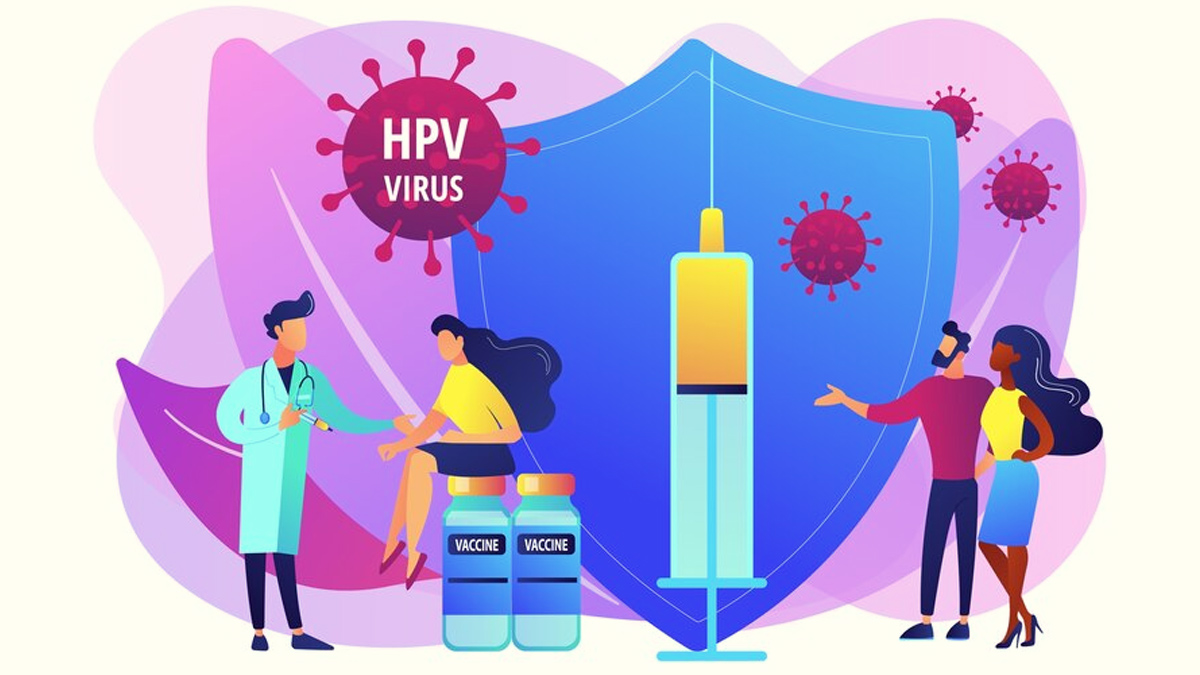
Have you ever considered how your daily habits might be affecting your health? For young women, everyday habits can unknowingly elevate the risk of cervical cancer. From neglecting regular screenings to dietary choices, understanding these habits is crucial for prevention and early detection. We spoke to our expert Dr Kinjal Kothari, Consultant – OBG, Manipal Hospital, Goa, who highlighted the importance of being aware of these factors and taking proactive steps to protect your health.
Table of Content:-
The World Health Organization (WHO) defines cervical cancer as originating in the cervix, which is the passage connecting the vagina to the uterus. Nearly all cervical cancer cases (99%) are associated with high-risk Human Papillomavirus (HPV) infections, a prevalent virus spread through sexual contact. Persistent HPV infections can cause cervical cancer in women, even though the majority of infections resolve spontaneously with no symptoms.
Daily Life Habits That May Increase Chances Of Cervical Cancer
Cervical cancer remains a significant health concern among young women, influenced by various daily life habits that can unknowingly increase their vulnerability. Dr Kothari shared habits that make you prone to this cancer:
1. Lack of Regular Screening

"One of the primary risk factors for cervical cancer in young women is the absence of regular Pap smear tests. These screenings can detect precancerous changes early on, allowing for timely intervention and reducing the likelihood of cancer development," said Dr Kothari.
According to the National Cancer Institute, two commonly used screening tests are HPV and cytology tests (also known as Pap tests or Pap smears). These tests help detect high-risk HPV infections and identify abnormal cell changes or precancers that can be treated before developing into cancer. Therefore, individuals with a cervix must begin regular screenings in their 20s.
2. Tobacco Use
Smoking and exposure to secondhand smoke have been linked to an increased risk of cervical cancer. Chemicals in tobacco can damage cervical cells and interfere with the body's ability to fight HPV infections, a leading cause of cervical cancer.
Also Read: Smoking And Cervical Cancer: Expert Explains The Link And Why Quitting Matters
3. High-Risk Sexual Behavior

Engaging in sexual activities at a young age or having multiple sexual partners can elevate the risk of contracting HPV, a virus strongly associated with cervical cancer. According to the American Cancer Society, HPV infections are widespread, and in most cases, the body clears them on its own. Some infections become chronic and persist for a long time. When this happens, particularly with high-risk HPV types, it can lead to serious conditions, including cervical cancer.
"Practicing safe sex and getting vaccinated against HPV can mitigate these risks and prevent cervical cancer," added Dr Kothari.
4. Poor Diet and Obesity
A diet lacking in fruits and vegetables, coupled with obesity, can compromise the immune system's ability to combat HPV infections. Maintaining a healthy weight and consuming a balanced diet, rich in antioxidants are protective measures.
5. Long-Term Use of Oral Contraceptives

"While birth control pills are generally safe, long-term use (five years or more) has been linked to a slightly increased risk of cervical cancer. Women considering oral contraceptives should discuss the risks and benefits with their healthcare providers," said Dr Kothari.
6. Weak Immune System
Conditions that weaken the immune system, such as HIV/AIDS or undergoing immunosuppressive therapy, can heighten susceptibility to HPV infections and increase the risk of cervical cancer. Managing these conditions effectively is crucial.
7. Poor Hygiene Practices

Inadequate personal hygiene, such as not regularly changing sanitary pads or tampons during menstruation, may increase the risk of infections that could lead to cervical cancer. It is important to practice good hygiene habits to maintain a healthy lifestyle.
Also Read: Worried If Cervical Cancer Can Lead To Infertility? Here's What Expert Has To Say
8. Family History of Cervical Cancer
A family history of cervical cancer or particular genetic traits can elevate the risk of young women developing the disease. Early screening and preventive health care might be prompted by knowledge of family medical history.
9. Stress and Mental Health Issues
Chronic stress and mental health disorders can weaken the immune system over time, making the body more susceptible to infections like HPV. Managing stress through healthy coping mechanisms is vital for overall well-being.
10. Lack of Physical Activity
A sedentary lifestyle contributes to obesity and weakens the immune system, potentially increasing the risk of cervical cancer. Engaging in regular physical activity not only promotes overall health but also supports immune function.
Bottomline
Dr Kothari concluded, "While cervical cancer can be influenced by various daily life habits, awareness, and proactive measures can significantly reduce its incidence. Regular screenings, cervical cancer vaccination for suitable candidates & maintaining a healthy lifestyle, practicing safe sex, and managing risk factors effectively are crucial steps for young women to protect themselves against this preventable disease. By adopting these habits and staying informed, young women can empower themselves in the fight against cervical cancer."
[Disclaimer: This article contains information provided by an expert and is for informational purposes only. Hence, we advise you to consult your own professional if you are dealing with any health issues to avoid complications.]
Also watch this video
Read Next
Paediatric Cancer: Expert Explains 5 Types Of Paediatric Cancer, Their Symptoms, And Treatment
How we keep this article up to date:
We work with experts and keep a close eye on the latest in health and wellness. Whenever there is a new research or helpful information, we update our articles with accurate and useful advice.
Current Version
